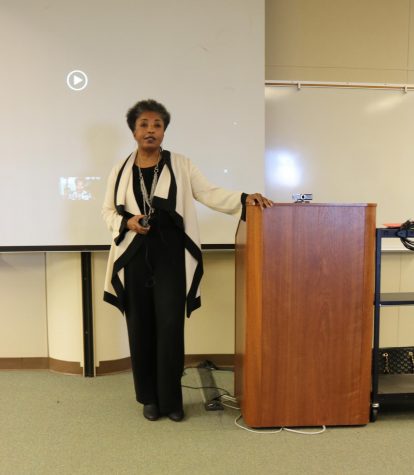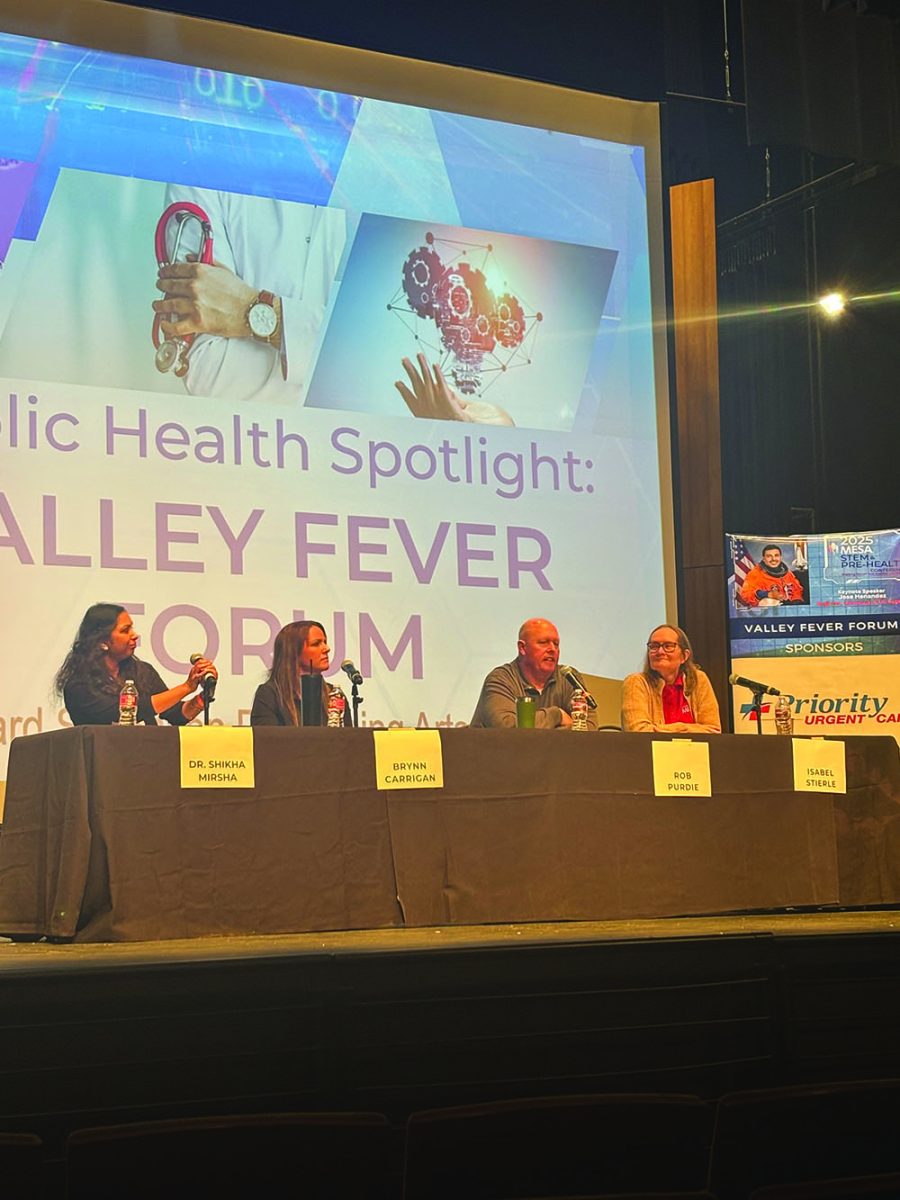Carol Swain introduces BC on how African American should be represented in politics
February 8, 2019

Carol Swain introducing herself in the Levan Center on Feb. 7.
Distinguished speaker and professor Carol Swain spoke at BC on Feb. 7 in the Levan Center based off her book “Black Faces, Black Interest,” which was originally published in 1993. Swain’s work that focused on subjects such as representation and race relations earned her high recognition amongst her colleagues and internationally.
Swain who was not new to the issues of race, immigration, and religious liberty was soon to speak on the topic of the representation of African Americans in Congress.
With the subject at hand, there were plenty of questions to be asked. How does congress represent the interests of African Americans? Must blacks be represented by blacks to be properly heard? and so on.
When Swain took to the podium, she gave the audience all an in-depth look into her life and how it had all led her into a career of politics and to become a well-established college professor.
“I started in 1976 at a community college and my desire at the time was just to get a good job,” Swain said.
It was made clear that Swain’s journey was not as easy as she had to go through many trials and tribulations. For someone who was born and raised in the rural south of the 1960s and grew up in a poverty-stricken community, Swain talked about how her upbringing at the beginning of her life made it particularly difficult to succeed.
“I remember one year we missed eighty out of one hundred and eighty days of school,” Swain said, but also protested that her and her siblings where so educationally advanced that many times they would still make an A or B in their classes.
“I grew up believing in the American dream, and I still believe in America,” Swain said as she went on to speak about her college and teenage years. She discussed with us all on how she got married at sixteen and had her first child at seventeen and eventually went on to have two more children by the age of twenty.
It was recognizable that Swain was very relatable for many young college students that may have gone down that same road and we’re still striving to be the best they could possibly be regardless of circumstances.
Swain went on to speak about how a suicide attempt propelled her life forward and was the push she needed to get her a college degree and eventually her Ph.D.
Swain soon began speaking on the main subject matter of race and politics using her book “Black Faces, Black Interest” as a source for touching points on why she felt the way she did about African Americans in Congress and her political identity.
Swain explained that she counter argued the ideas that only African Americans could represent black interests effectively in politics and that “as long as blacks held the views they did they had best be represented by Democrats so that it didn’t make sense to draw majority-black districts.” She closed the discussion concluding that “substantive representation” which was representation not of those of physical similarities, but of those with similar belief and moral similarities was more important. Simply ending with the idea that it is very possible to represent black interests regardless of the lack of black representation in Congress.





